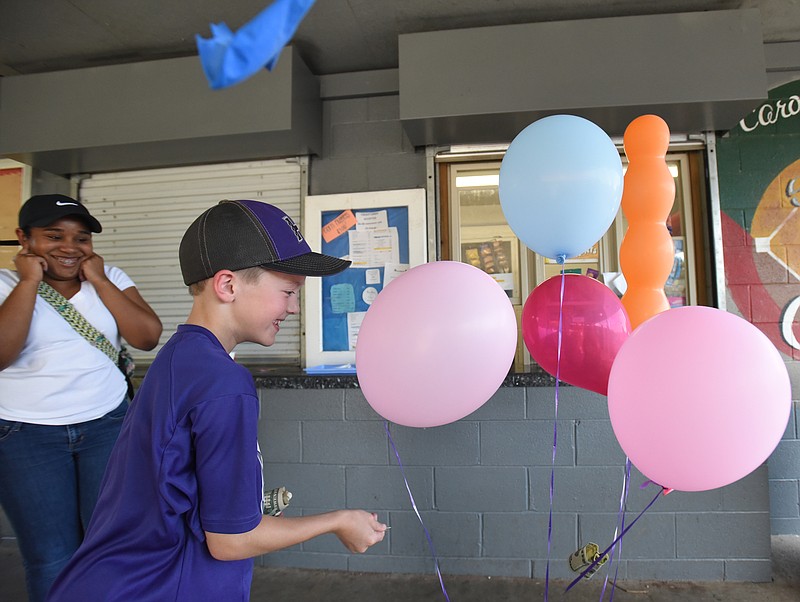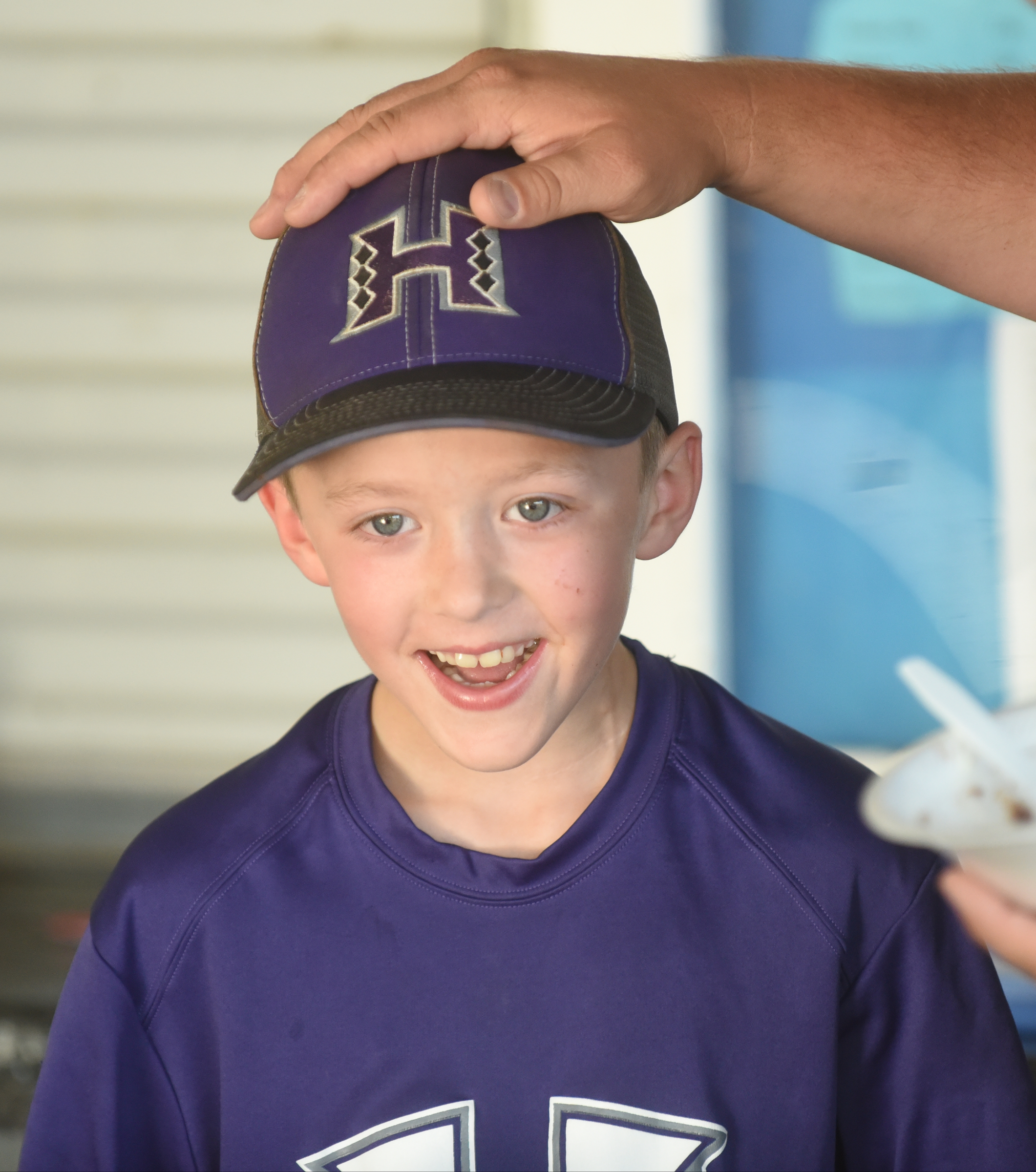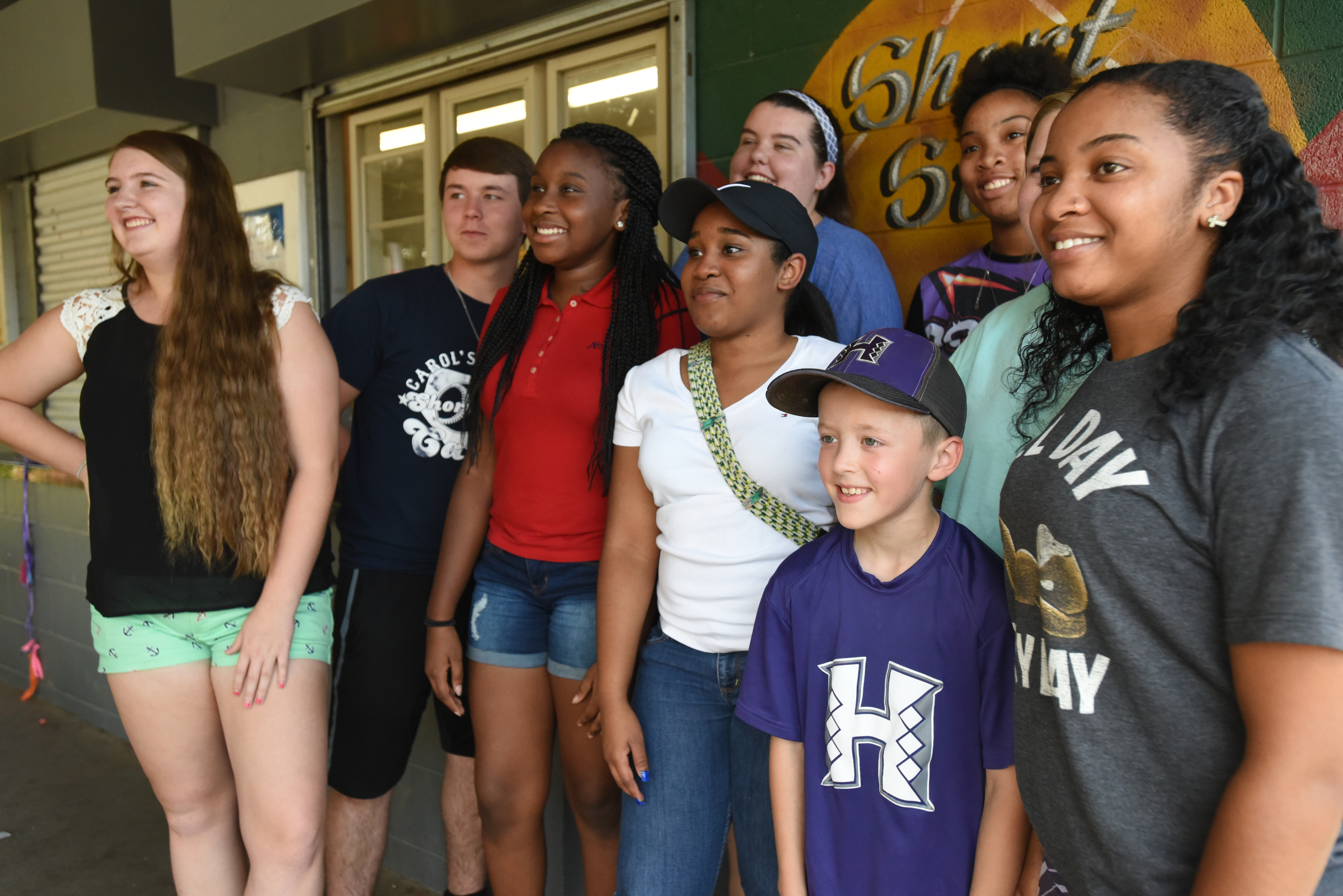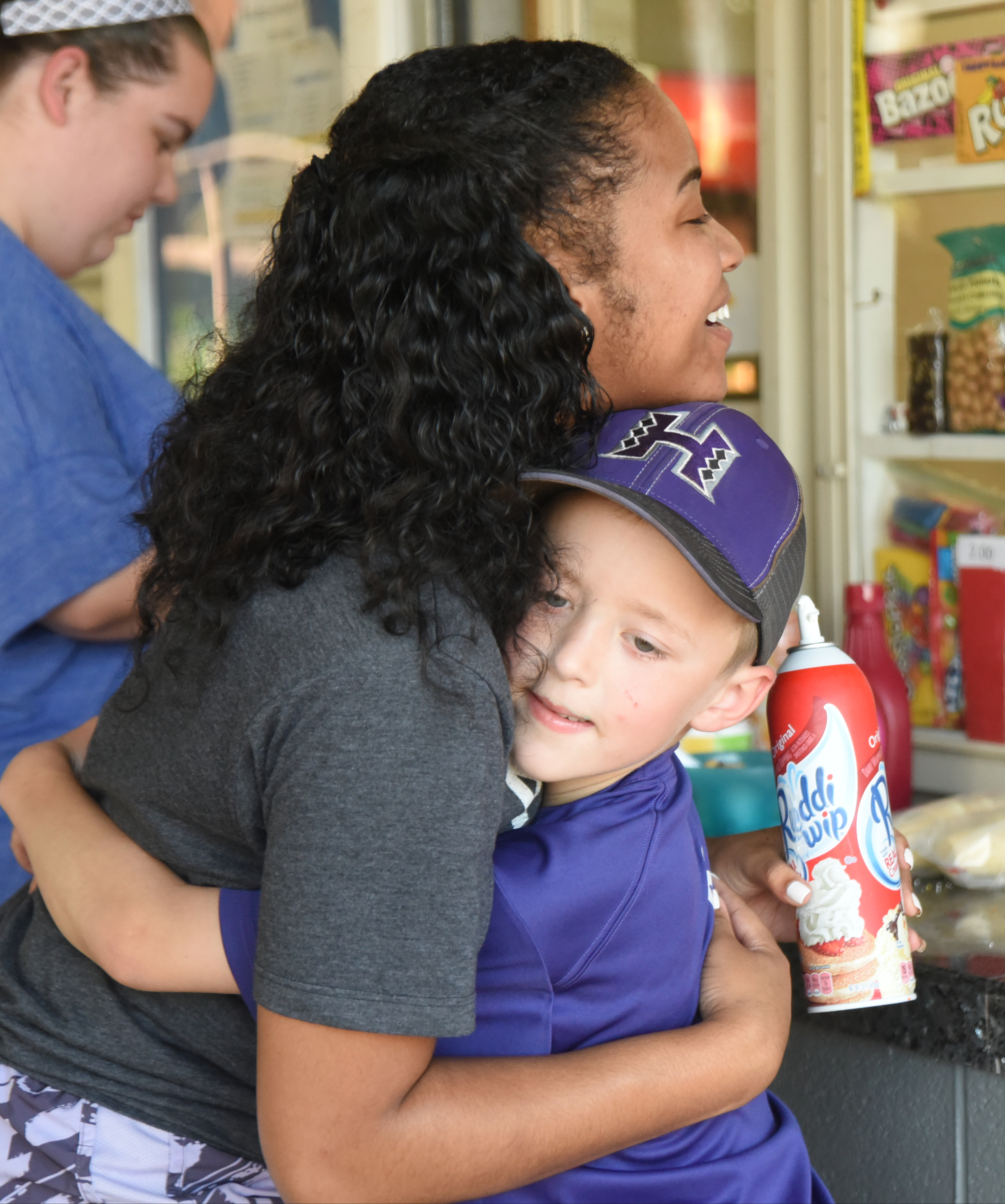To donate
A Go Fund Me page has been set up to raise money to send Emmett, the Barnes’ German shepherd, to therapy training. Find Independence for Coop at www.gofundme.com/indep4coop.
Sometimes it's not the quantity of a gift that counts, but the spirit in which it's given.
That was the case last week when a dozen teenagers who work concessions at Harrison Recreation ballfields took their tips collected during the three-month baseball season and gave them to 9-year-old Cooper Barnes. Cooper was diagnosed at age 5 with epilepsy and, due to the type and frequency of his seizures, he can't be left alone.
The teens gave the Barnes family their collection of $120 to go toward training Cooper's German shepherd, Emmett, to be an epilepsy therapy dog. While $120 is hardly a dent in the $14,000 expense of training Emmett, Rachel Barnes, Cooper's mom, says, "To know you have that kind of support for your child makes me want to cry."
Carol Pearson, concessions manager for Harrison Recreation on Highway 58, says that, on some nights, the tip jar might have 16 cents in it at closing, on a good night $6.
"They usually divide it among themselves. But this year, because some were full-time and some part-time workers, they decided to donate it all to charity," says Pearson. "Cooper is such a great kid, always happy, always smiling. I could have cried when they thought of that."
The tip jar isn't a big money-maker for the teens, she says, it just gives them a little bonus to the $5 hourly rate they are paid per shift.
"When we were thinking about it, we were looking at different charities, but then we realized we had one of our own we should help," says Jalah Johnson, 16, a junior at Chattanooga School for the Arts and Sciences.
The teens planned a pizza and ice cream party at the concession stand and asked the Barnes family to come - not telling them about their planned surprise.
"We put the money in balloons in $20 bills," Johnson says. "We made it a game and told Cooper he had four tries to find the surprise. When the first balloon popped and money fell, he looked so surprised, like, 'There is actually money in these balloons!' I think we touched their hearts with this one. They had a smile on their faces all night long."
Emmett, Cooper's best friend, could be the solution if he can go to therapy dog training. It's a lot cooler to pal around with your dog than your mom when you're heading into the pre-teen years.
"We've investigated therapy dog training, and it can cost up to $35,000," Rachel says. "But Guardians of the Night in Atlanta is where we want to go. It specializes in the training he will need, and it will cost $14,000 to $15,000. We've raised $1,000 so far, then we started a Go Fund Me page. But we've been so busy with all the medical issues, we haven't had time to focus on this.
"If Emmett is trained, he'll go to school with Cooper; he'll go everywhere with him. That's why we are calling this Independence for Cooper because it will give him independence - and that's something he's never known."
Epilepsy is a neurological disorder that affects people of all ages. While the disorder is most commonly associated with seizures that shake the body, Cooper's seizures aren't like that. His are known as absence seizures, silent occurrences that often are often unrecognizable but cause the individual to blank out and have lapses in awareness.
"He stares off and his pupils dilate. Headaches are a sign he is having or about to have one," says his mother. "He was in kindergarten when he was diagnosed. When we went to the emergency room that night, they did an EEG, and it showed he was hawving seizures almost every 30 seconds."
Rachel and Cooper's father, B.J., have tried several treatments to help their son but with no success. Among the attempts were six different kinds of medicine to a surgery that inserted a device called a vagus nerve stimulator, which is designed to prevent seizures by sending regular, mild pulses of electrical energy to the brain through the vagus nerve, one of the cranial nerves, according to epilepsy.com.
Currently, Cooper is seeing two neurologists, one at Children's Hospital at Erlanger, the other at Vanderbilt University.
"He's on 12 pills a day plus a stimulator," his mother says. "A side effect of all the medicine is that he has developed shakes - his hand shakes when he tries to write, and it takes him longer to accomplish things. That's really stressed him out.
"Now it takes him three minutes to write one word because he's trying to hold his hands still. He's going to have physical and occupational therapy."
These challenges are difficult to handle for an active 9-year-old who loves sports, especially playing the outfield in baseball. Because of his illness, he must have someone with him at all times, says his mother, which limits his independence. He is not able to shower, sleep or do a lot of everyday tasks alone.
"If his class at Snow Hill Elementary goes on a field trip, the school nurse and I both go," Rachel Barnes says. "He just recently started having more issues because, with his epilepsy, he can't spend the night with friends. He can't go to Lake Winnie with his friends because I don't want to put that responsibility on their parents.
"He told me he just wants to be normal like everyone else," she says.
Contact Susan Pierce at spierce@timesfreepress.com or 423-757-6284.



